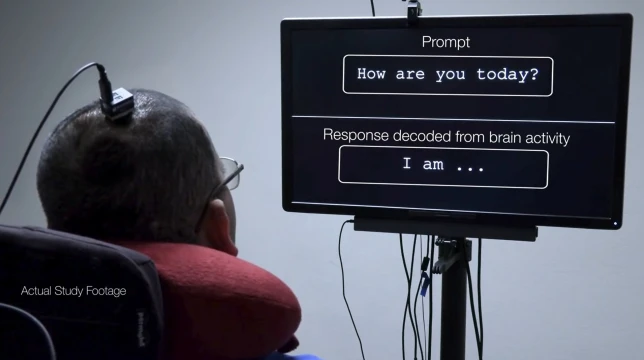A patient with ALS (Amyotrophic lateral sclerosis) has broken the record for the number of words communicated per minute with a brain implant.
The 67-year-old patient had lost her speech after being diagnosed with ALS eight years ago. Whilst she could make sounds, she had to use an iPad to communicate or a writing board to communicate.
The patient, who was named as “subject T12” in the study, volunteered to be part of a trial by a team at Stanford University.
She is now able to communicate rapidly, using phrases such as “I don’t own my home” and “It’s just tough”. Her communication previous records, as she is able to communicate at a rate of 62 words per minute via the brain implant. This is three times her previous best.
ALS affects speech, as the disease causes progressive paralysis in those who have been diagnosed. This is due to ALS affecting neurons in the brain, causing them to gradually deteriorate. As this happens, the neurons stop sending messages to the muscles. This affects control of the muscles needed to move, speak, eat and breathe.
The university have just released the paper where they detail the patient’s progress.
How it works
So how exactly do the brain implants read thoughts?
Embed from Getty ImagesA small pad of sharp electrodes are implanted in the patients’ brain, in the motor cortex, which is the part of the brain involved in movement. Scientists recorded activity from a few dozen neurons in this area, and identify patterns in the neurons that correlate with the motions that people are thinking about.
In this study, the researchers wanted to see if these neurons could also detect if somebody wanted to speak. The implant was able to detect when “subject T12” was trying to move her mouth, tongue and vocal chords. The neurons contained enough information for a computer program to predict with good accuracy what words the patient was trying to say. The information was then translated onto a computer screen.
Hope for the future
Many people are affected by paralysis that could benefit from this technology, including people with ALS and brain injuries. The researchers have said that they hope this is the first step to helping people with paralysis regain communication, at regular conversation speeds of around 140 words per minute.
“Our results show a feasible path forward to restore communication to people with paralysis at conversational speeds,” wrote the researchers.

